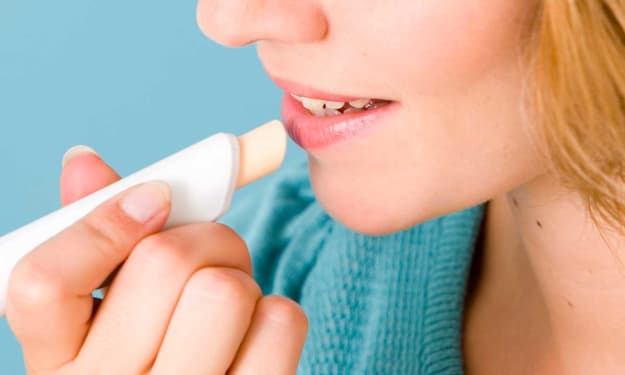Everything You Need to Know About Cortisone Injections for Acne
Get the scoop on cortisone injections for acne so you're ready for anything.

Cortisone is a pervasive steroid hormone, released naturally by the body in many situations, and used extensively in the medical field. It's responsible for your fight-or-flight responses that prepare you to face danger, and it's the key ingredient in many anti-itch and anti-inflammatory creams.
Those uses, though, aren't the uses for cortisone that this piece is all about. This article is about cortisone shots for acne, a practice that has been long used and approved by doctors, but that many people still balk at. Listed here are the facts about these cortisone injections, so if you're considering taking that step, you can make the most informed decision possible.
How It Works and What to Expect
Cortisone, as I mentioned, is a steroid hormone. It's often used to help reduce inflammation, and is injected into inflamed areas to help with the swelling and pain. When used this way, the corticosteroid is mixed into a solution to dilute it, and that diluted solution is injected into the problem site. It doesn't work like many other acne solutions, but rather by reducing the size of large pimples in the same way they reduce any other kind of swelling.
The idea of having a needle stuck into your face—especially an already-painful part of your face—seems absolutely horrifying to many. The truth is though that these steroid shots barely hurt at all. In fact, many people report feeling nothing or next to nothing at all, or even somewhat enjoying the feeling, in a gross-but-satisfying way.
When you go to get an injection, the first thing to know is that the needle is not that scary. The second thing you might want to know is that it is fast. A lot of people balk at the idea because it seems like a rather extreme solution; but the truth is, you'll likely spend much more time commuting to get it done than you will in the actual office of your dermatologist.
Once you do get an injection, the swelling should start to go down within a couple of hours. By the next day, you should expect a relatively, if not completely, flat pimple. Now, that doesn't mean it will be entirely gone: often, the injection site will remain discolored for a little while, so be prepared to cover it up with makeup if you're doing it for a big event. However, that's easy to do once it has been deflated.
When You Should—and Shouldn't—Consider It

The best time to consider a cortisone injection for acne is when you have a large, painful, unsightly pimple or pimples that you want to get rid of, pronto. Many people make emergency appointments with their dermatologist right before a big event, especially something like a wedding, when they notice a pimple growing. However, cortisone injections really only work for large, existing pimples. While catching a breakout early and upping your skincare routine for yourself works with most kinds of products, the cortisone injection is not something you can easily plan for. If you see a pimple beginning to grow, and know it will be getting big and painful, you can go ahead and make an appointment to get a shot. On the other hand, there's not much that a dermatologist can do about a smattering of small blemishes, or old, deflated pimples that still look red and unsightly. The cortisone injection is really only meant for large, swollen pimples. It's also best to avoid popping any pimples that you want to get rid of quickly, as it's easier to take care of them in your doctor's office if you've managed to leave them alone in the meantime.
So, short version: Cortisone injections are a great option for getting rid of large, unsightly pimples in a snap, but not ideal for other types of acne, blemishes, and breakouts, or as-of-yet-undeveloped ones.
Where to Go and Who to Talk To

Like most things involving needles, cortisone injections for acne are not something you can be doing at home. You should make an appointment with a dermatologist, and let them handle it. Even if you could get your hands on the necessary materials, the wrong proportions of saline solution and the active corticosteroid can lead to long-term damage and scarring, and quite frankly, jabbing needles—even these tiny ones—into any part of your face or body, especially without proper training, is just a terrible idea. Luckily, the procedure is extremely quick and easy, so you can be in and out of your dermatologist's office in just a few minutes.
The Effects

The big, obvious beneficial effect of cortisone injections for acne is, of course, its intended purpose: to reduce your pimples. The injections directly target the worst offenders, taking care of nasty zits in as little as a few hours. It's a quick, easy way to get rid of problem pimples right before an event, or when you have a truly horrendous, stubborn, painful one. Be mindful though, the cortisone injection can have other side effects as well.
First of all, if the solution isn't properly diluted—meaning, there's too much of the steroid itself—it can actually cause more scarring. You want to make sure that you find a dermatologist you trust, and that they're using heavily diluted solutions. Of course, this doesn't mean that you should avoid cortisone steroids because you don't want to scar—the ease with which this method gets rid of truly nasty pimples means that you have a much lower chance of scratching or scarring on your own. If you're especially prone to acne scars and pits under normal circumstances, considering cortisone treatments might reduce your risk of scarring. However, if your acne is generally well-handled, you should weigh the risk of long-term damage.
How to Incorporate It into Your Skin Care

Cortisone injections aren't meant to replace your skincare routine. It's not, contrary to its reputation in some circles, a magic wand. Because this kind of treatment only really works for large pimples that you have right now, and because you have to get an appointment to take care of it, you should still be caring for your skin in all the other, normal ways: washing your face regularly, using acne creams and ointments for smaller breakouts, keeping your face well-moisturized, and following science-backed ways to fight acne. If nothing else, a proper skincare routine every day of the week will save you the hassle of cortisone injections. More than that, it will save you money and time fighting blemishes that cortisone can't help, and ward off potential scarring. If you decide to incorporate these injections into your life, make sure you still do your best to keep the need to a minimum and do regular maintenance in order to ensure you will have great skin.
About the Creator
Nicola P. Young
Lover of Books, Saxophone, Blogs, and Dogs. Not necessarily in that order. Book blogger at heartofinkandpaper.com.






Comments
There are no comments for this story
Be the first to respond and start the conversation.